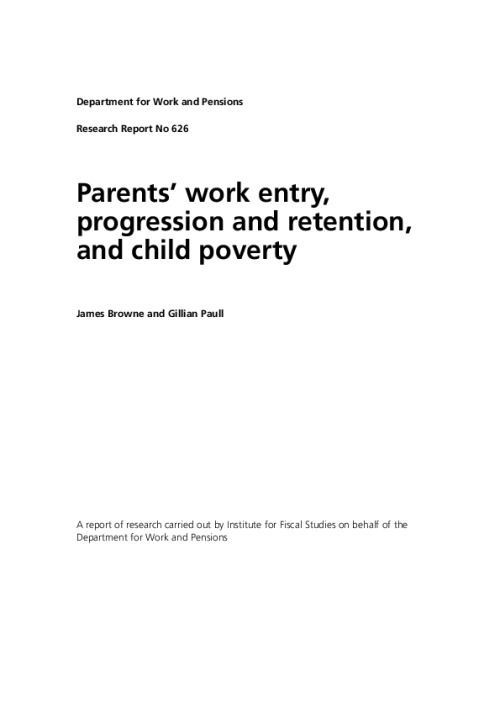<p><p>Recent policy initiatives have focused on facilitating formal paid employment for parents as a means of lifting children out of poverty. Although entry into employment may not automatically mean that family income rises above poverty thresholds, it might be hoped that progression up the work ladder in terms of earnings and hours would allow those families who do not immediately escape poverty to advance out of poverty. But there is a danger that families may simply move from non-work poverty to a long-term in-work poverty trap. Moreover, retention in work is far from guaranteed: some parents may not remain in employment for very long and find themselves following a cycling pattern into and out of work without permanently escaping poverty.</p><p>This report documents the dynamic patterns in work and poverty for families using data for the years 2001 to 2006 from the Families and Children Study. The analysis examines the degree to which simply moving into work is an important factor in lifting families out of poverty or whether significant retention and progression within employment are key elements in allowing families to escape from poverty. It also investigates the relationships between work progression and work retention, considering how failure to remain in work for very long may be related to a lack of employment advancement.</p> </p><p> </p><p></p>









